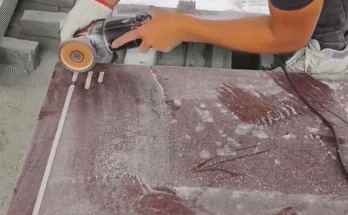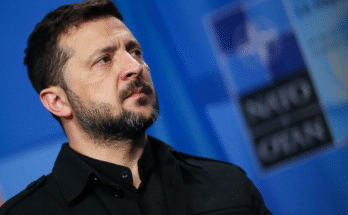PARIS — In a significant diplomatic push, France is actively working with its close European partners to craft and propose a comprehensive, negotiated settlement aimed at de-escalating the intensifying conflict between Israel and Iran. This initiative comes amid growing international apprehension over the potential for wider regional destabilization.
The decision to launch this new peace effort was made during a defense Cabinet meeting held on Wednesday at the Elysée Palace. Following the discussions, French President Emmanuel Macron formally tasked his Foreign Minister, Jean-Noël Barrot, to “lead in the coming days an initiative, with our close European partners, in order to propose a stringent negotiated settlement.” This directive signals a renewed and urgent commitment from Paris to engage diplomatically in a region increasingly on edge.

Details Remain Scant as European Diplomacy Mobilizes
Despite the strong commitment expressed by President Macron, the specifics of France’s proposed settlement remain largely under wraps. The Elysée statement that announced the initiative provided no immediate details regarding the content of the proposal itself, nor did it name the specific European nations Paris is collaborating with on this sensitive matter. However, it is widely understood that France will likely engage its traditional partners within the E3 group—comprising the United Kingdom and Germany—nations that have historically worked closely on nuclear negotiations and broader diplomatic efforts concerning Iran for many years.
Further underscoring the urgency of the situation, a European official confirmed to POLITICO that high-level diplomatic engagements are already underway. The EU’s top diplomat, Kaja Kallas, is scheduled to join her E3 counterparts for a crucial meeting with the Iranian Foreign Minister in Geneva this Friday. This in-person gathering follows a recent phone call between the four parties on Monday and aims to “discuss the latest developments and urge Iran to return to the negotiating table.” These discussions highlight a concerted European effort to maintain lines of communication and exert pressure for a diplomatic resolution.
Past Efforts and Persistent Challenges
This latest French diplomatic foray follows a previous attempt by President Macron to mediate in the conflict. Earlier this week, during the G7 summit in Canada, Macron publicly stated that “an offer had been made” to U.S. President Donald Trump, hinting at the prospect of a ceasefire between Israel and Iran. However, Trump swiftly and publicly dismissed the French president’s comment, asserting that Macron “always gets it wrong,” a clear indication of the significant diplomatic hurdles and differing approaches among key international players.
On Wednesday, beyond advocating for a negotiated settlement, President Macron also issued a strong call for an end to military strikes against civilians and non-nuclear targets. The French presidency reported that the French leader “expressed his concern about the current escalation, with Israeli strikes that are targeting more and more objectives that are not linked to the Iranian nuclear and ballistic program.” This statement reflects a growing alarm within European capitals over the expanding scope of the conflict and its potential humanitarian consequences.
Despite these persistent calls for restraint and increased diplomatic efforts from European leaders, their appeals have so far appeared to fall on deaf ears in Washington and Israel. This ongoing challenge underscores the deep-seated complexities of the conflict and the difficulty in shifting the current trajectories of the involved parties through diplomatic means alone.


